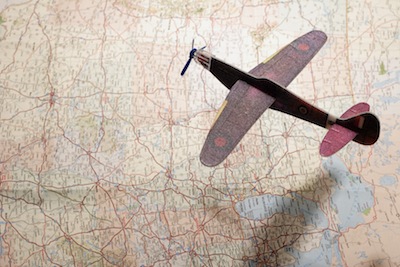JD Power just released its rankings for the airline industry, rating seven key areas of the airline experience (reservation, check-in, boarding, aircraft, staff, service and cost) on a five-point scale. One represents the best; five represents the worst. USAirways tied United Airlines for last place, with an overall score of two.
I am not surprised. My most recent experience with USAirways illustrates the indifference the airline has to its customers. My dad had purchased two nonrefundable, nonexchangeable tickets for himself and my cousin to travel to Fort Myers. This is a trip they enjoy every year, for the Red Sox spring training. Unfortunately, as my dad was hospitalized, he was unable to travel. A doctor’s letter confirmed his inpatient admission.
Tough luck, said USAirways, the tickets were nonrefundable and nonexchangeable and company policy is inflexible on this point.
Eventually, they relented, but it took a lot of effort on my part. USAirways agreed to allow my dad to transfer vouchers for the value of the two tickets, less a $150 re-booking fee for each, for my use. We had to have his signature notarized to confirm that he approved the transfer to me and supply a doctor’s letter stating that even when my dad would be discharged from the hospital (and the doctor could not guess when that would be), he would be unable to travel. USAirways gave me a time limit within which to use the vouchers.
I planned to use the vouchers to travel to do my programs with the American Red Cross, as this defrays the cost of my volunteer work. I was unable to do so. My dad was admitted to hospice where he died. I had hoped in view of that development, the airline would extend the deadline for my use of the vouchers and would consider returning to me the $150 per voucher re-booking fee. It seems a gratuitous penalty at a time of great sadness. That was wishful thinking. Once again, USAirways said “tough luck”.
And in case I was thinking of investing the time and effort in trying to persuade them to reverse their position, as I had originally done to get the vouchers in the first place, a representative of the airline sent me an e-mail message in which he wrote “We have found no reason to alter the original resolution as we are unable to make another exception in regard to your unused travel vouchers…We are considering this matter closed and there will be no further correspondence pertaining to this issue.”
In a functioning market economy, companies like USAirways wouldn’t be around for very long. Poor customer service practices don’t build sustainable businesses. But unfortunately, in the U.S., we socialize corporate losses and privatize their gains. Recall that after the September 11th terrorist attacks, Congress established the Air Transport Stabilization Board, offering $5 billion in cash payments for lost revenue when the airspace was shut down, insurance guarantees and liability protection and a $10 billion loan guarantee program. This act rescued USAirways Group Inc. and facilitated its merger with America West Airlines. Without the loan guarantees, both airlines likely would have been liquidated.
In Prepare for the Worst, Plan for the Best: Disaster Preparedness and Recovery for Small Businesses, I explained at length the nature of corporate welfare masquerading as emergency relief aid for powerful corporations. The airlines were already losing money before the events of 9/11. If they had been subject to the same criteria for small business 9/11 assistance, only those that could show they were profitable and sustainable before the disaster would have qualified for assistance. That would have limited the field of bailout candidates to one: only Southwest Airlines was profitable at that time.
And it is simply outrageous that Congress took cash from taxpayers and gave it to the airlines to compensate them for lost revenues. Business interruption insurance compensates businesses from revenues lost as a consequence of disasters. If USAirways or any other airline had failed to secure appropriate business interruption insurance, their management teams were guilty of gross negligence. Ask any Lower Manhattan small business owner if they received a 9/11 aid package to compensate them for their choice not to purchase insurance. (Or, for that matter, ask small business owners in New Orleans if they received comparable government largesse after Hurricane Katrina.)
USAirways has been working aggressively to acquire American Airlines, while the latter is trying to restructure its operations under the supervision of the bankruptcy court. The management of American Airlines appears to prefer to remain independent of USAirways. USAirways is reportedly proceeding to file paperwork with antitrust regulators to secure regulatory approval for its merger with American.
Let’s hope the Justice Department acts responsibly and blocks any such anti-competitive maneuverings. American Airlines is a leader in its industry for serving small business customers. Folding it into USAirways would limit consumer choice and force us to endure more bad service.
